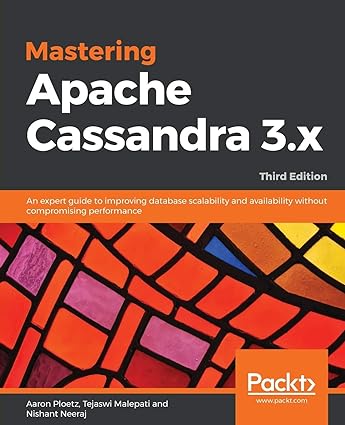Answered step by step
Verified Expert Solution
Question
1 Approved Answer
I need someone to check my solution. also, most of all I need someone to give me other solution correct. All constraints within a schema
I need someone to check my solution. also, most of all I need someone to give me other solution correct. 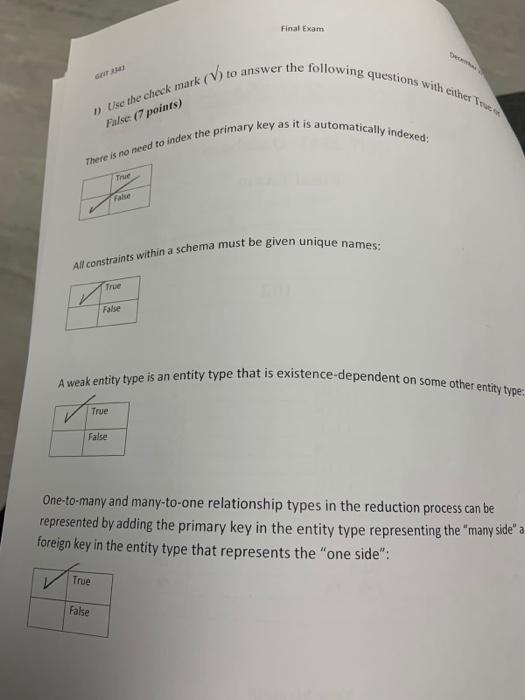
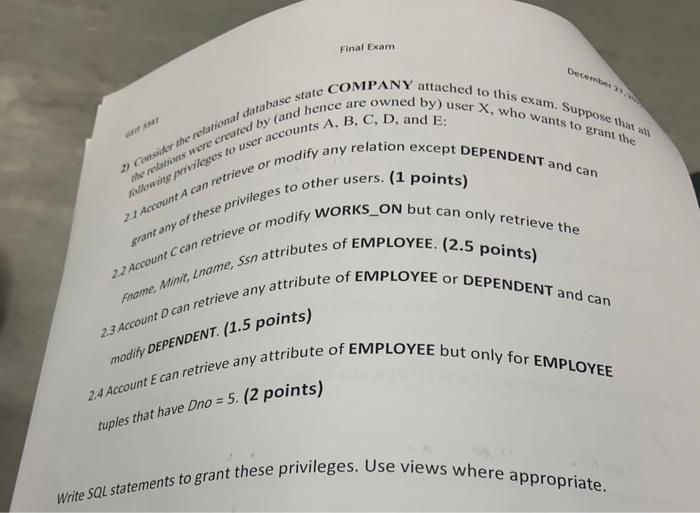
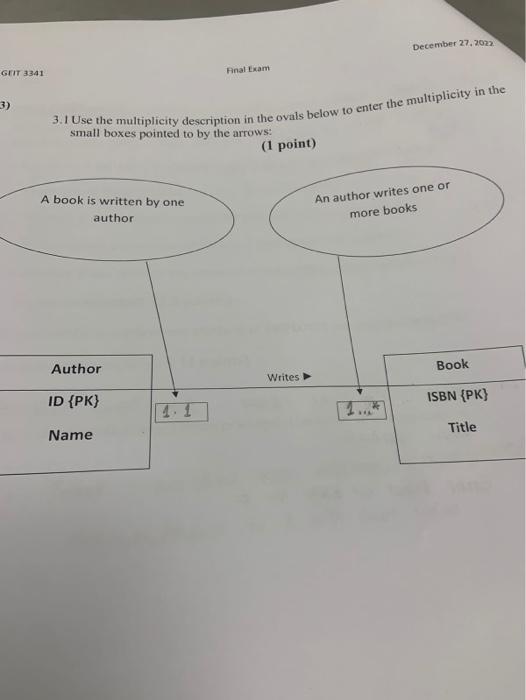
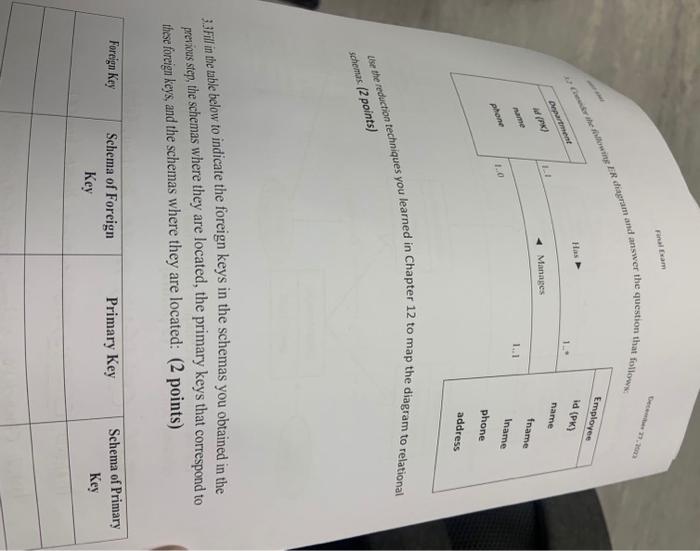
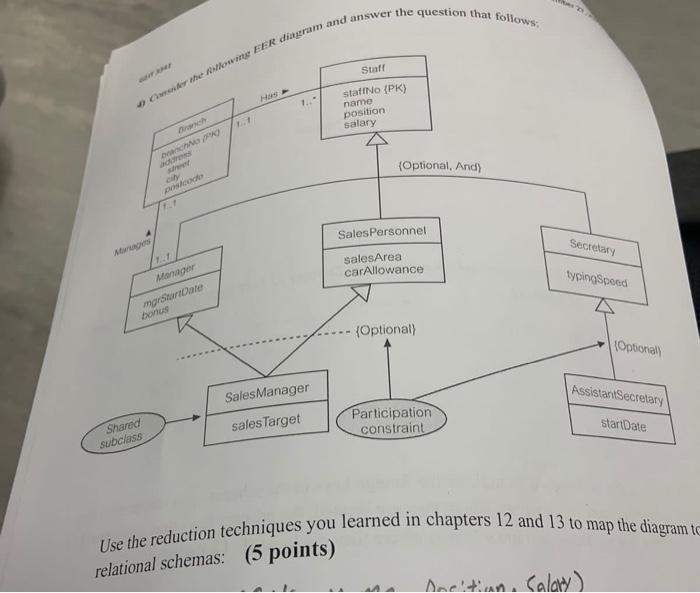
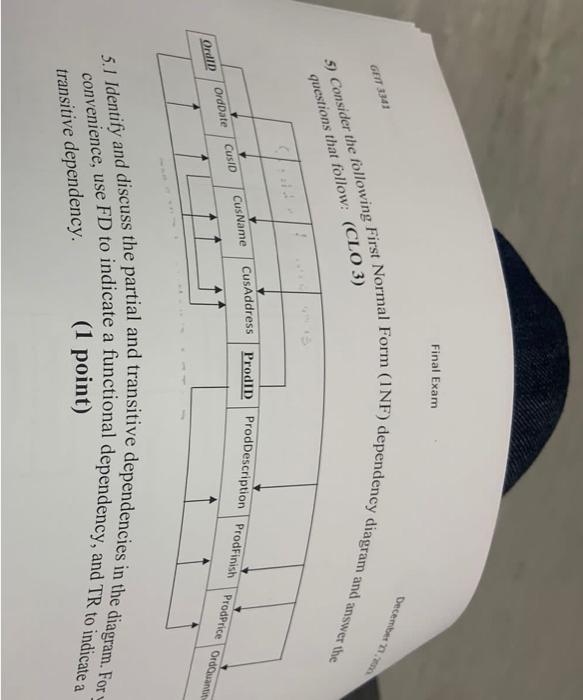
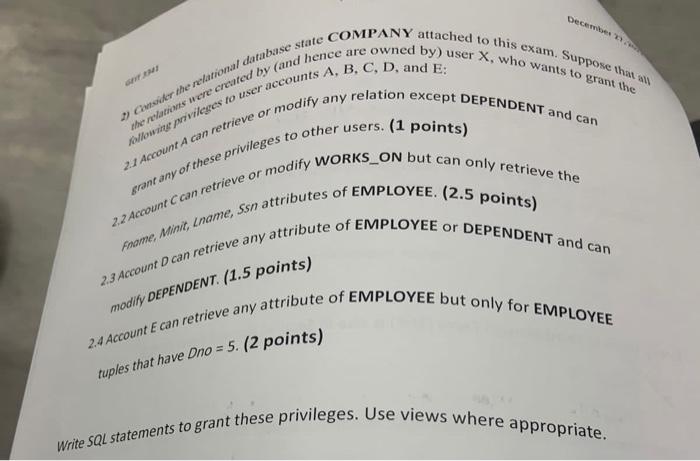
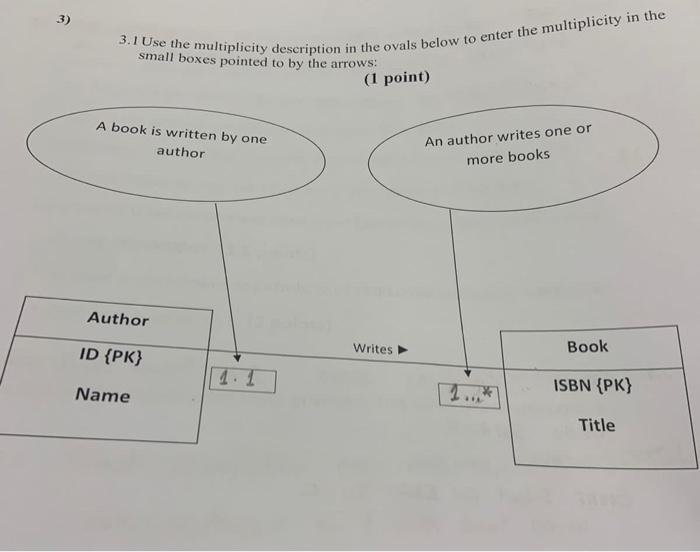
All constraints within a schema must be given unique names: A weak entity type is an entity type that is existence-dependent on some other entity type: One-to-many and many-to-one relationship types in the reduction process can be represented by adding the primary key in the entity type representing the "many side" a foreign key in the entity type that represents the "one side": Grant any of the 2.2 Account canters ssin attributes of EMPLOYEE. (2.5 points) fnome, Minli, 2.3ACcOUnt D can retrieve any atrior modify DEPENDENT 2.4 Account E can retrieve any attrioure or Write SQL statements to grant these privileges. Use views where appropriate. 3. I Use the multiplicity description in the ovals below to enter the multiplicity in the small boxes pointed to by the arrows: (1 point) wet the reduction techniques you learned in Chapter 12 to map the diagram to relational sechemas. (2 points) 3.3Fill in the table below to indicate the foreign keys in the schemas you obtained in the prwious step, the schemas where they are located, the primary keys that correspond to these forrign keys, and the schemas where they are located: (2 points) Use the reduction techniques you learned in chapters 12 and 13 to map the diagram relational schemas: (5 points) 5.I Identify and discuss the partial and transitive dependencies in the diagram. For convenience, use FD to indicate a functional dependency, and TR to indicate a transitive dependency. (1 point) grant any of the ese prifieve or modify WORKS_ON but can only retrieve the 2.2 Account c can retrieve of modity ureibutes of EMPLOYEE. (2.5 points) Fmome, Minit, Lname, any attribute of EMPLOYEE or DEPENDENT and Can 2.3 Account DC Can modify DEPENDENT. 2.4 Account E can retrieve any actiriourc tuples that have Uno sorie privileges. Use views where appropriate. 3.1Use the multiplicity description in the ovals below to enter the multiplicity in the small boxes pointed to by the arrows: (1 point) 







Step by Step Solution
There are 3 Steps involved in it
Step: 1

Get Instant Access to Expert-Tailored Solutions
See step-by-step solutions with expert insights and AI powered tools for academic success
Step: 2

Step: 3

Ace Your Homework with AI
Get the answers you need in no time with our AI-driven, step-by-step assistance
Get Started


